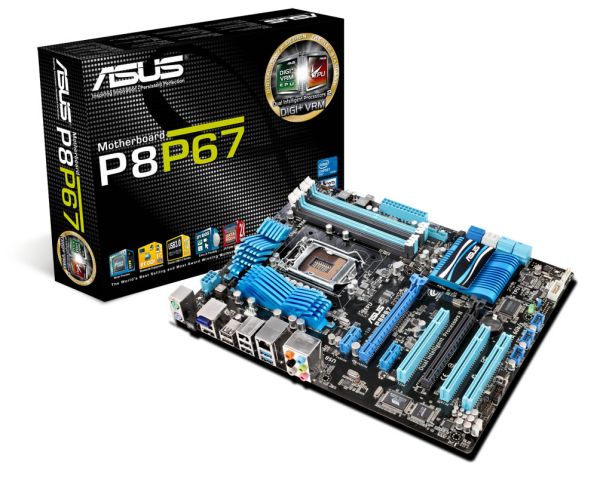ASUS P8P67 Review
by Brendan van Varik on September 8, 2011 10:45 AM EST- Posted in
- Asus
- Motherboards
- P67
Final Words
This is the first motherboard I personally have used on that has a UEFI BIOS and I have to say it is a nice change from the traditional BIOS. Some may argue that the UEFI BIOS is still in its infancy and if this is the case, I think we are looking at something great in the future. From what I can see, the ASUS BIOS engineers have done a good job in producing something that is straightforward and easy to use. The CPU temperature reported in the shipping UEFI BIOS was the only issue I could find. However, as mentioned in the review, I updated the BIOS after all of my testing was done and the CPU temperature appeared to be more accurate.
Even though the P8P67 does not offer as many features as the more expensive models in this range, or even some of the optional extras in the box which other boards come with in the same price range, it does perform better than you may have initially thought. The dual GPU side of things is what lets this motherboard down. Due to the x16/x4 arrangement, rather than the x8/x8 we see on most other P67 boards, it really restricts the amount of data which the second GPU can receive. Therefore the user will not benefit from as much of an increase in frames, but there is scope for other utilities. The power consumption is also higher than other motherboards we have tested.
Overall, despite this board being available for a little while I would say this motherboard is a good contender in the P67 sub $160 price range, but some of the additional extras which come with the ASRock P67 Extreme4 for example may be enough to sway people towards that board instead.











52 Comments
View All Comments
LoneWolf15 - Friday, September 9, 2011 - link
I'm not trying to be sarcastic --I'm just wondering why it seems like the P67 chipset is being reviewed (in some cases, even hyped) by tech sites and a lot of users I see in hardware forums now that the Z68 chipset is out.For almost every price tier of P67 chipset, I can find a Z68 chipset board within $10-20. The ASUS P8Z68-V is only $15 more than the $150 price of the P8P67 here, and it has more features. There are also lower-priced variants (the V-LX and V-LE) and the higher end V-Pro to round it out.
I'm just confused as to why the P67 chipset is relevant now that the Z68 chipset is available.
faizoff - Friday, September 9, 2011 - link
I agree with others that reviewing a P67 board at this time is moot. I'd rather read reviews on the Z68 series and see what I'm missing out on. :-)But sometimes it's nice to look back on boards and see how they've fared months after release.